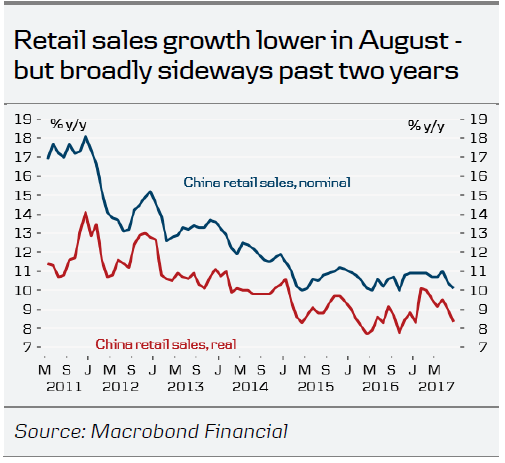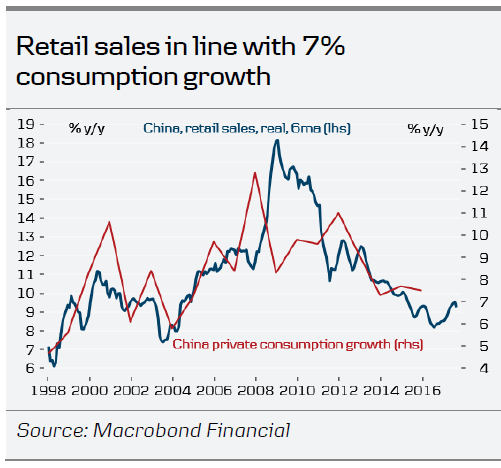Chinese growth data disappointed overnight pointing to weaker growth in both industrial production, fixed investment and retail sales. While we have expected China to slow down this year, I believe there are reasons to take the data with a grain of salt as they do not fit with what you see in for example PMI manufacturing and metal prices, which both pointed to a rebound into the summer. As often the case, Chinese data seems to be pointing in different directions at the moment.
We do expect growth to slow in China over the next 12 months as housing – and most likely infrastructure investment – cools on the back of policy tightening. But we are not sure the slowdown is happening already as the official data today says.
So what did the data say: Industrial production fell to 6.0% y/y in August (consensus 6.6% y/y) from 6.4% y/y. Fixed asset investments (in current prices) fell to 7.8% y/y in August (consensus 8.2% y/y) from 8.3% y/y. Retail sales dropped to 10.1% y/y in August (consensus 10.5% y/y) from 10.4% y/y. So disappointments across the board pointing to more slowdown than expected.
However, the reason we are a bit sceptical is illustrated below.
First, headline industrial production has not been in line with the signals from PMI manufacturing since 2012. And according to these numbers Chinese manufacturing has seen broadly flat growth since 2015 (apart from a temporary lift higher) although there is plenty of evidence that activity has gone up. PMI is up, profits are up, producer prices are sharply up and not least global metal prices (of which China consumes 50%) are much higher since early 2016. Metal prices have increased a lot over the summer as well.
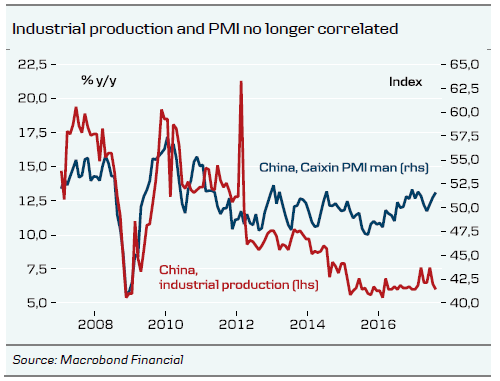
Second, we trust more some of the sub-components in the industry numbers. For example steel production. This has increased a lot in recent months in line with the increase in PMI and metal prices.
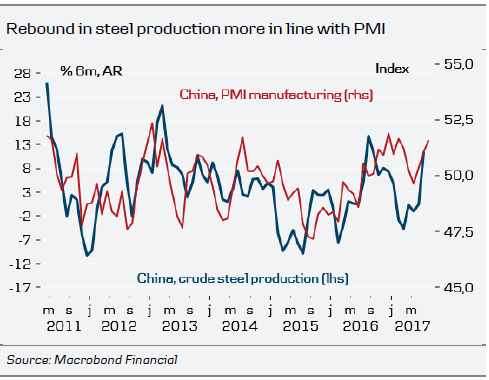
Third, electricity generation has rebounded again lately after falling earlier in the year. Hence, the same picture as PMI and steel production as well as metal prices.
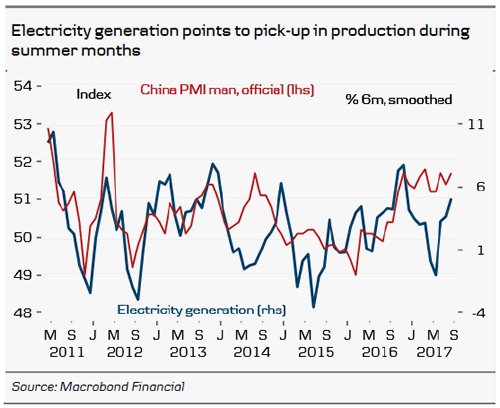
So where does this leave us? We are sceptical that China has really slowed during the summer – even though it would have been better in line with our own scenario. But it simply doesn’t fit with all the indicators we trust the most when it comes to China? Why do we trust them more? Because they are statistics that are independent of each other yet highly correlated and painting a similar picture – and in line with what we see in commodity markets that tend to be correlated with activity in China.
When it comes to overall fixed asset investments they have shown a steady decline since 2010. It fits well into a rebalancing story in China, but it does not fit well with the indicators I mention above. A lot suggests that investments in construction and infrastructure have driven a pick-up in overall investments over the past year. Something we expect to fade soon due to the tightening measures from PBoC and the regulators.
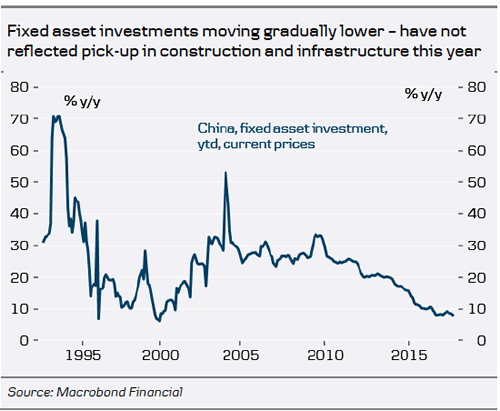
The retail sales data also disappointed today – but overall the numbers have been moving sideways for the past 2-3 years. So not worsening but also not improving.
